Tara Parker – Co-founder of SCOUTINGZONE — Spoke With Diane Scavuzzo on What to Do and the Mistakes to Avoid
Technology and soccer work well together and can improve old-fashioned paper immensely — but what really is important when it comes to trying to get recruited by a college scout?
COLLEGE RECRUITING INFO: Part I – Tara Parker

SCOUTINGZONE is a cutting-edge mobile app that has changed the college soccer recruiting game. The easy to use innovation makes scouting easier and more efficient by streamlining the on-site experience at tournaments and showcase events.
With so many youth soccer tournaments today, ever stop to think how do scouts track players?
Click here for Part II – with SCOUTINGZONE’s co-founder Brooke Oxberry
SCOUTINGZONE is an online app a lot of college coaches pay for — and here are invaluable tips on what to do and mistakes to avoid from the experts!
Want to know what field and what time a player is playing? Turn to SCOUTINGZONE’s app and find out — and college scouts can add player notes and reference later.
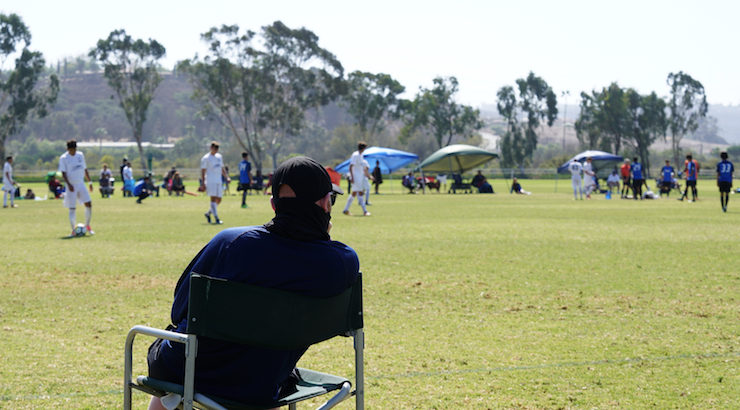
For the youth soccer players, SCOUTINGZONE provides a direct connection to college scouts, allowing players to update their profiles — maximizing exposure with their highlight videos, photos and more — right in the application scouts use to track and watch players.
Players can create a Top 10 College list that alerts scouts of player matches for their program, increasing the opportunity for recruitment.
Founders of SCOUTINGZONE Tara Parker and Brooke Oxberry both grew up playing soccer, which instilled in them a thriving passion for the sport. Growing up in San Diego, they played together for Torrey Pines High School and San Diego Surf Soccer Club. Parker is a youth soccer coach as well as the co-founder of SCOUTINGZONE.
Diane Scavuzzo: How do you define success?
Tara Parker: Defining success is very individual, everyone views it differently. However, simply put: setting goals and reaching towards your goals is the essence of achieving success.
Diane Scavuzzo: What surprises people about YOU most?
Tara Parker: That this highly successful technology company was founded by women in the sports industry – breaking barriers.
Diane Scavuzzo: Are there secrets to getting recruited?
Tara Parker: Honestly, it’s quite simple.
If you want to play college soccer you have to work for it.
When a college coach shows up to an event, there are thousands of top-level players competing for the same roster spots.
Players — not parents — need to be proactive with the process, reaching out to college coaches through emails, phone calls, follow-ups, on-site visits, and ID camps. The players who work at this — they are the players that get recruited.
The players who sit back waiting to be noticed are the ones that miss the opportunity.
At the end of the day, college coaches recruit players who want to be a part of their program.
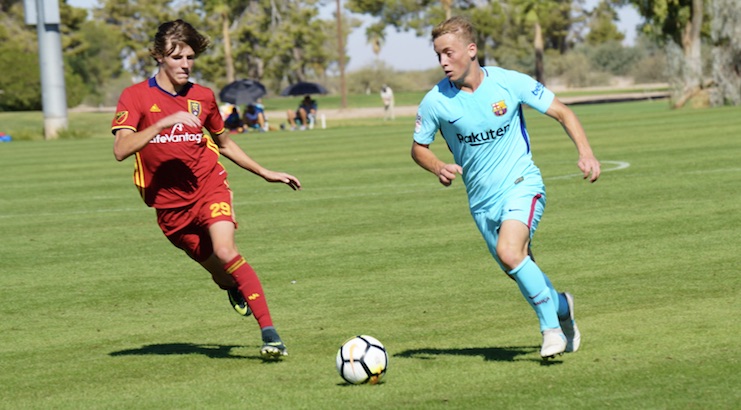
Diane Scavuzzo: What are the top mistakes made when trying to get recruited by a college coach?
Tara Parker: There are a few mistakes we see over and over again. Here is my list of the top 5 worst mistakes people make when trying to get recruited for college soccer:
- Many players — and most parents — make the assumption that they will receive a full athletic scholarship because of the investment they have made during their years of playing youth soccer at a youth soccer club.
- The reality is, only a very small percentage of athletes will receive a full athletic scholarship.
- When a player is on a high-profile, or “successful team”, people tend to think the player will naturally or “automatically” be recruited.
- Big Mistake — Every player needs to put in the work to be recruited. If players sit back and wait to be recruited — pursued by colleges — they will miss many opportunities.
- Players should be the ones doing the work and not parents!
- Yes, a college coach really knows when an email is written by a parent, they can tell when a parent is driving the interaction and it is a big turnoff for college coaches.
- Many players think that once they have announced a commitment to a college that they can put their development in cruise control. It’s an exciting time to commit, but your “recruitment” has not stalled at this point. The process continues and your future coaches will continue to track your development and progress.
- Committed players should be working even harder to prepare for the collegiate level. A successful youth career does not guarantee a successful collegiate career; you still have to earn your roster spot and playing time.
- Choosing a school based solely on its soccer program is a major mistake and can lead to potentially transferring down the road.
- It’s important to choose a program where you are excited about the school – academics and school experience should be the driving force before soccer when making a decision.
Truth is, soccer is just a portion of your college experience.
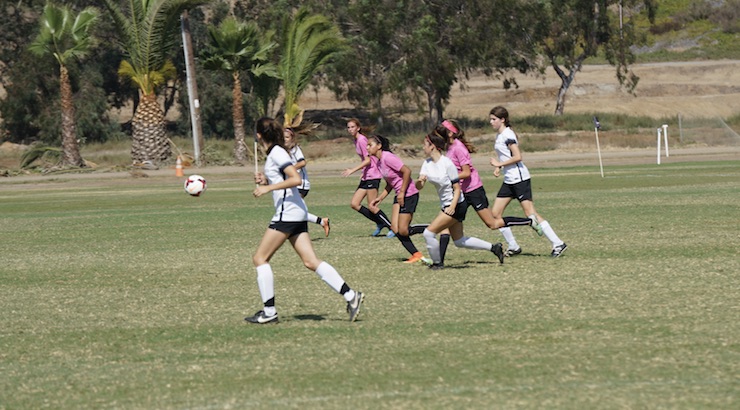
Diane Scavuzzo: When did you launch SCOUTINGZONE?
Tara Parker: We launched during the summer of 2015. SCOUTINGZONE was created to solve a huge disconnect between Tournaments, Players, and College Coaches. There was a massive need in the youth soccer landscape to provide quality player data to coaches/scouts in real-time while they are evaluating players on-site at events.
There were many sites out there that gave players false hope to play college soccer.
Being former players ourselves, we created a platform to provide equal visibility to all players regardless of socioeconomic status.
Related Article: SCOUTINGZONE Soccer Recruiting For College
Diane Scavuzzo: How many players are registered in SCOUTINGZONE now? How many coaches use SCOUTINGZONE now?
Tara Parker: There are currently 85,000 players registered in SCOUTINGZONE and 2,000 soccer scouts registered which includes college coaches, ODP, US Soccer, & professional scouts.
SCOUTINGZONE is the most widely used scouting platform.
Diane Scavuzzo: SCOUTINGZONE will be on site at Surf College Cup — what do you do at the tournaments and what other tournaments do you attend?
Tara Parker: College coaches typically are logged in to SCOUTINGZONE ahead of time identifying players they want to evaluate and creating their customized tournament schedule.
When we are on-site at our events, such as Surf College Cup, we are answering questions for college coaches and highlighting the list of players interested in their programs.
We also support questions from teams, managers, and parents as well. We partner with national events such as Surf Cup, Dallas Cup, Jefferson Cup, US Club Soccer NPL events and many others!
Related Article: Success For Women in Soccer 2017
Diane Scavuzzo: What is the one thing you have learned since you launched SCOUTINGZONE that surprised you?
Tara Parker: The biggest surprise is how complex the recruiting process has become and how confused the parents are with navigating the process.
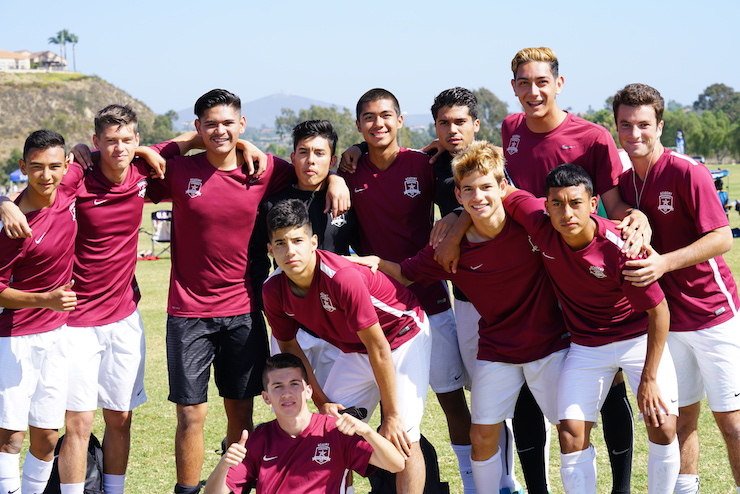
Diane Scavuzzo: Does being a player on a U.S. Soccer Development Academy (DA) team really make a big difference?
Tara Parker: Any opportunity to play against the best players should be the goal of any player seeking to play college soccer.
As an elite player, you should always strive to put yourself in the most competitive environment to develop at the highest level.
This opportunity could be in the DA, ECNL, NPL, ODP, National Camps – it depends regionally on the opportunities available for every player.
Diane Scavuzzo: What GPA do you have to have to usually be offered a scholarship? Does the “name” of the high school make a huge difference? Private vs Public?
Tara Parker: GPA standards depend on the institution the player is interested in pursuing. Admission standards will be different depending upon the college. However, the higher the GPA, the more advantageous the player is to a college program.
Players with high GPAs could be a candidate for an academic scholarship; which is highly beneficial to a soccer program – freeing up more athletic money to continue to recruit top players.
Diane Scavuzzo: How does SCOUTINGZONE help players and their families with the recruiting process?
Tara Parker: SCOUTINGZONE is the most widely used recruiting platform by college soccer coaches. If a player is looking to play college soccer it’s important they have their profile visible in SCOUTINGZONE for college coaches to evaluate them and track them from event to event.
SCOUTINGZONE also provides educational support to players/families in navigating the college pathway. It’s a complex time in their lives and we happily support them along the journey with education through our newsletters & player profiles to connect with college coaches across the country.
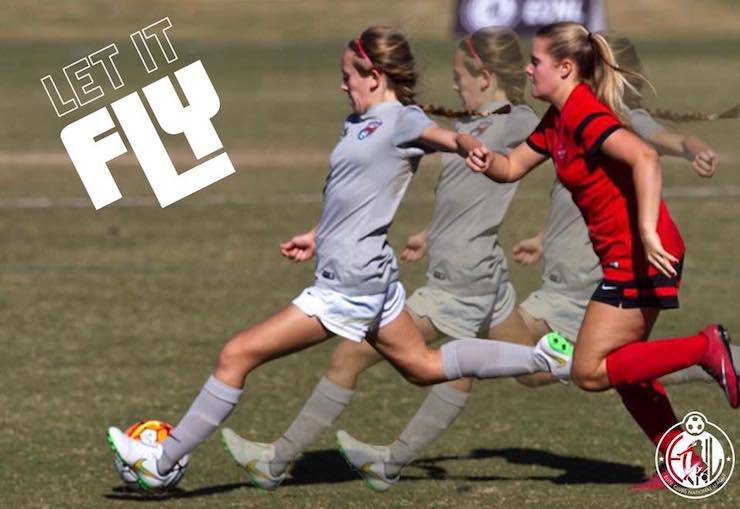
Diane Scavuzzo: What advice can you share on creating a player profile?
Tara Parker: The more information you provide, the more likely a college coach will come across you. College coaches can sort players based upon GPA, Interested College Major, Position, Grad Year, Geography, and many more areas of interest when identifying players to evaluate at events.
Diane Scavuzzo: What mistakes have players made when creating their profiles?
Tara Parker: The biggest mistake we see often is a player not completing or updating their profile before an event!
If a player truly wants college coaches to follow them – they need to ensure their profiles are complete and updated weeks before an event.
The biggest tip we can provide – fill out your top school list!
Players can choose the schools they are most interested in playing for. So when the college coaches show up to Surf College Cup – they review all the players interested in them and send one of the staff members to evaluate them. Players should also be sending their SCOUTINGZONE profiles to college coaches ahead of time to get them to their games.
Lastly, think of your highlight video as a “teaser.”
You will not be recruited solely off of your video but it helps coaches determine if you are a player they want to watch live.
Keep it short and include your best moments to show your abilities to tease them enough to want to see more (and make sure the music isn’t something that turns them off either!).
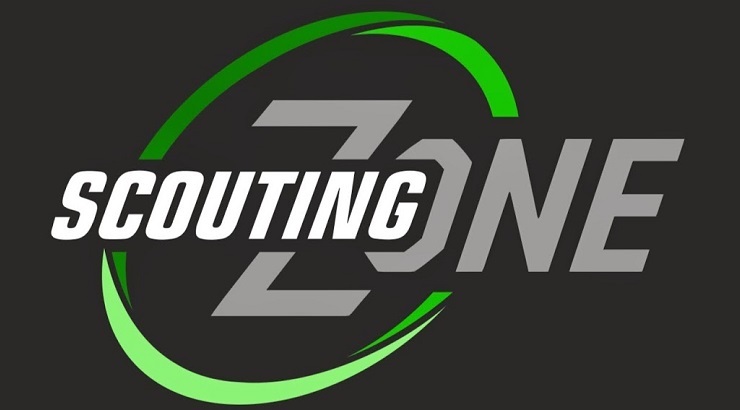 Diane Scavuzzo: Do youth soccer players really lose their scholarships or roster spots because they are rude to their parents or teammates?
Diane Scavuzzo: Do youth soccer players really lose their scholarships or roster spots because they are rude to their parents or teammates?
Tara Parker: Yes they do!
I hear over and over again that college coaches go early to watch players in warms ups and stay post game to see their interactions with their teammates, coaches, and parents.
There are many good players.
College coaches are looking for more than just a good player. They want players that are good teammates, leaders that will enhance the culture of their program.
Diane Scavuzzo: What advice can you share with youth soccer players who dream of going to a top D1 College?
Tara Parker: Dream big. Set goals. Be honest in your self-evaluations to achieve those goals.
Don’t let anyone tell you you can’t.
It won’t come easy, but if you are willing to work for it, there is a school for you!
Diane Scavuzzo: What is the simple way of explaining the difference between D1, D2 and D3 colleges?
Tara Parker: The biggest differences in the divisions are the available resources, budgets, and facilities.
My advice – don’t get caught up on the division of the program, focus on what the school has to offer and good luck!
Related Article: US Club Soccer Helps College Coaches ID Players






